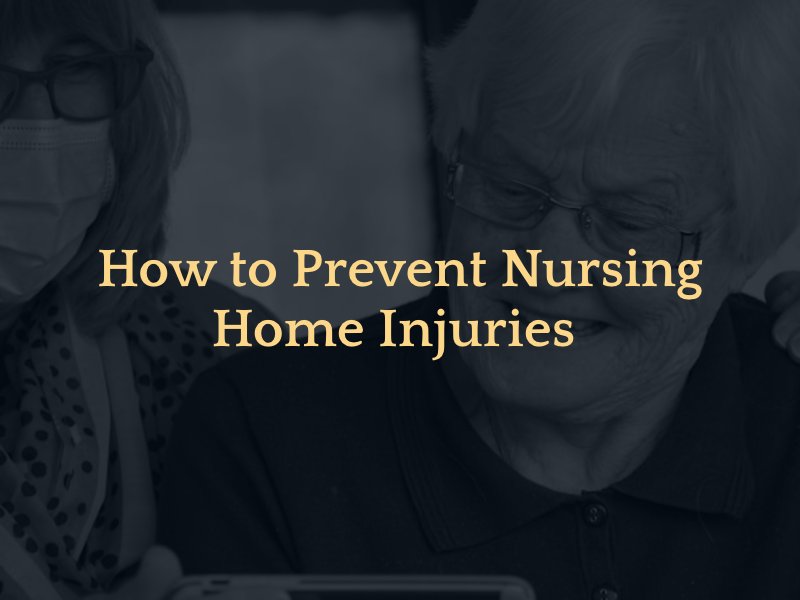
Our nation’s elderly are vulnerable to life-altering impacts when they suffer injuries. Sadly, a hip fracture often leads to a serious decline in overall health due to the need for surgery, immobilization, and decreased independence. Falls are the most common cause of nursing home injuries and the second-leading cause of traumatic brain injuries, largely due to how common they are among the elderly population. A fall can happen anywhere, but a disproportionate number of fall injuries occur in nursing homes compared to the elderly who receive care in home environments.
How do we prevent dangerous or even deadly injuries to the elderly in nursing homes?
Why Do Falls Happen in Nursing Homes?
Nursing homes in the United States are chronically understaffed and experience high staff turnover rates. This results in an inadequate staff-to-resident ratio, a lack of supervision, and poorly trained caregivers. Falls in nursing homes commonly occur due to the following:
- Inadequate caregivers, resulting in the lack of assistance with toileting, and other daily routines
- One caregiver trying to transfer a resident from bed to wheelchair when it requires two
- Lack of assistive walking equipment or poorly maintained assistive devices
- Cluttered living spaces
- Inaccessible personal items
- Overly high beds and improper bedrail usage
- Poorly maintained furniture
- Inadequate lighting
The elderly have mobility problems, and balance issues, and are often on medications that increase their risks of falls. Nursing homes have a duty to prevent injuries and provide adequate care with respect for the human dignity of their residents.
What Other Injuries Occur in Nursing Homes?
Falls are the leading cause of nursing home injuries, but injuries occur to nursing home residents in other ways as well. Residents may develop bedsores when they lack assistance in position changes. Positional asphyxiation may occur, as well as bedrail injuries, choking, dehydration, and medication mistakes. Sadly, this, combined with nursing home abuse and neglect makes these facilities a significant hazard for the physical and emotional well-being of the elderly in their care.
How Can Family Members Prevent Nursing Home Injuries?
When placing a loved one in a nursing home, examining the resident-to-staff ratio is essential to ensure that the elerly family member receives adequate care and supervision. Family members should also make regular visits and watch for signs of neglect or abuse, such as unexplained injuries, weight loss, poor hygiene, and unclean or cluttered living spaces. It’s important to regularly check the care and quality of mobility aids and furnishings and encourage the elderly to wear comfortable, well-fitting sneakers with adequate treads to prevent slipping.
How Can Nursing Home Administrators and Staffmembers Prevent Nursing Home Injuries?
Nursing home administrators, staff, and caregivers have a legal and ethical duty to prevent injuries to the residents in their care by remaining vigilant, providing adequate caregivers for the number of residents in the facility, regularly maintaining and replacing mobility equipment, and implementing proper staff training and supervision.
Providing adequate care to prevent injuries includes doing the following:
- Assessing the fall risk of each resident and regularly reassessing risks
- Regular staff training on injury prevention
- Reducing the over-medication of residents
- Adding safety equipment and regularly inspecting and maintaining assistive walking equipment
- Removing clutter and fall hazards
- Implementing regular exercise programs
- Increasing vitamin D intake in residents
Through the close monitoring of residents’ health, frequent reassessments of fall risks, frequent position changes, and adequate, skilled supervision, nursing homes reduce the risk of resident falls.
Despite taking all the necessary precautions, nursing home injuries can still occur due to negligence or abuse. If you suspect that your loved one has suffered from mistreatment or injury in a nursing home, it’s crucial to seek legal assistance immediately. A skilled nursing home abuse attorney in Phoenix can help you understand your rights, investigate the situation, and pursue justice for your loved one.
